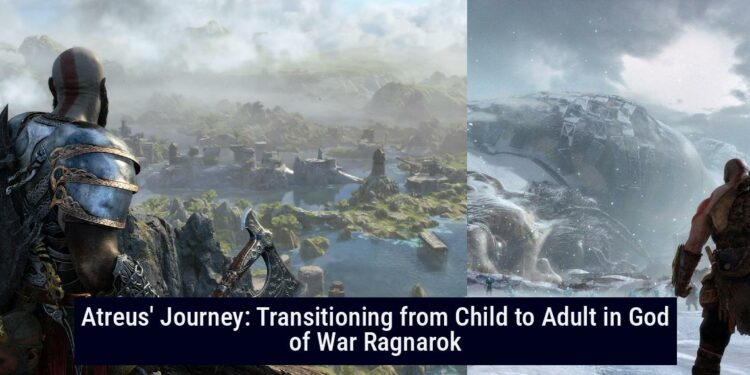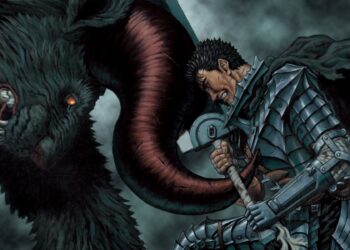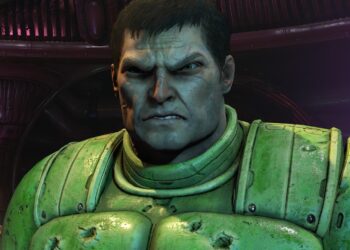How Does Atreus Transition from Child to Adolescent in God of War Ragnarok?
The highly anticipated follow-up, God of War Ragnarök, shifted to balance that focus between Kratos and his son, Atreus. While this was a natural direction for the game to take, it was also a challenging one for the developers at Santa Monica Studio (SMS), moving beyond the protagonist they’d worked on for nearly two decades to create a brand-new playable character whose own motivations would drive the story.
There were two major strands to this process: first, envisaging Atreus as a more independent young man able to act on his own initiative, and secondly, reimagining him as a playable character. This reimagination included his own distinct abilities that felt consistent with both his character and the gameplay we have come to expect from God of War.
Atreus matures in God of War Ragnarök, growing into a fourteen-year-old with increased physical strength and a deeper voice. He becomes self-reliant, managing his own grooming and wielding the Talon Bow. As he steadily steps out of his father’s shadow, gone is the fumbling boy of the previous game— in his place stands a capable adolescent.
Atreus’s character in God of War Ragnarök serves as a profound exploration of identity, responsibility, and the ethical implications of power. His desire to learn, to become a better fighter, and to build a stronger relationship with his father are just some of the traits that made God of War Ragnarök a significant evolution for him.
This game is about learning how to trust each other separately, so it fits. Ragnarok’s take on Atreus gave me some insight on how to write a kid protagonist. He’s a better handled version of Nero from DMC4 and Sora from Kingdom Hearts.
Moreover, Atreus from God of War is one of the better written kid characters I’ve seen in a long time. KH and Shonen anime could learn a thing or two from how Sony Santa Monica handled him. He’s a blast to control when he’s playable; it feels like he got a shonen anime/young adult novel spinoff within Ragnarök. I’m hoping he gets a full game in the future.
Throughout the God of War series, Kratos has never been portrayed as the perfect father. After all, he was directly responsible for the death of his first child, and his second child, Atreus, was outspoken throughout 2018’s God of War about how his father had mistreated him. While the end of the game does show the pair bonding on a level they had never done before, the sequel, God of War: Ragnarok, will test their relationship.
What Role Does Kratos’ Storytelling Play in Atreus’ Development?
Kratos, once an angry, vengeance-driven God of War, has learned to control his rage and approach life with wisdom. He teaches Atreus patience and responsibility. However, what’s striking is that Kratos himself learns just as much. His journey from a man who believed that wars are won with sacrifices to one who realizes that innocence must be protected is deeply moving.
Atreus matures into a determined, responsible young man. His decisions, empathy, and willingness to take risks for the greater good highlight a growth arc that’s as satisfying as it is inspiring.
One of the most powerful moments in the game comes when Kratos realizes that war isn’t just about sacrifices—it’s about why we make them. Early in the story, Kratos believes victory comes at any cost. However, through his journey, he learns that vengeance and violence often create more pain than resolution. This shift in perspective is profound and mirrors our own struggles with morality and purpose.
Kratos’s storytelling plays a pivotal role in Atreus’s development. He grapples with his past and tries to be a better father. By sharing stories from his past, Kratos offers wisdom and guidance that deepen the bond between father and son. These intimate moments humanize Kratos and illustrate his growth as a nurturing figure.
Atreus, struggling with his dual heritage, embarks on a journey of self-discovery. This is marked by his desire to understand his true nature and the role he is meant to play in Ragnarok. His interactions with mythological figures reveal layers of complexity in his character, portraying his coming-of-age story as poignant and relatable.
The themes of family, loss, and redemption are central to God of War Ragnarok. They are intricately woven into Atreus’s narrative. As he comes to terms with the weight of his destiny, Atreus grapples with the sacrifices it involves, which adds emotional depth to his character development.
Character development and progression are at the core of God of War Ragnarok. As Kratos and Atreus face their pasts, they grow stronger. Kratos transitions from a lonely warrior to a leader, embracing peace and community. Meanwhile, Atreus embarks on a transformative solo journey.
The narrative focuses on Kratos and Atreus looking for Tyr, the Norse god of war, and Atreus seeking answers about his true identity as Loki. Some of the trailer’s details reveal how the characters have grown between the titles, specifically regarding Atreus learning from his father.
With major revelations about Atreus’ origins and identity coming at the end of the last game, God of War Ragnarok will undoubtedly have them contending with each other once again. Kratos states, ‘Loki will go, but Atreus remains.’ Atreus sets off on his own, leaving Kratos with the shrine.
Are Atreus and Angrboda’s Relationship Dynamics Shaping His Character Growth?
Atreus and Angrboda do end up together by the end of God of War Ragnarok. This is primarily shown through scenes of the two together and how the rest of the cast interacts with them. At several points in the epilogue, they are shown flirting with or being intimate with each other. Characters like Kratos acknowledge this by saying things like they ‘don’t want to intrude.’
Moreover, they choose to set out together at the end of the game for a new goal. Following Odin’s defeat by Kratos, Atreus, and their allies, Atreus reveals to Kratos that he intends to travel the realms looking for the other Giants still trapped in Soul Spheres. He plans to do this alongside Angrboda, who has already agreed to go with him. Together, they intend to work toward the shared goal of rescuing and returning all of their people to Jötunheim.
This development is heartwarming and pays off one of the cuter new relationships established throughout the game. It opens the door for future stories or even games centered around the two exploring the different realms, following their adventures and the next chapters of their relationship together.
Once the battle of Ragnarok is over, Atreus decides to find his own path and save the lives of the remaining Jotnars. Subsequently, Atreus bids farewell to Kratos, embraces Angrboda, and sets out on a journey with her.
When Angrboda and Atreus initially meet, she teaches him more about the life of Giants as they explore Ironwood together. Shortly after, she introduces him to a monumental task. Angrboda possesses a collection of marbles, each comprising a Jotnar soul. She informs Atreus that other Giants are out there and can be reawakened by giving them their souls back.
Angrboda starts doubting her role in Atreus’ journey, believing that her part was over when she revealed the prophecy to him. However, she lets go of that belief and joins forces with Kratos and Atreus during the final battle. Angrboda realizes that Atreus hasn’t told Kratos about his Giant visions, and she is aware of the path he is about to set on. Atreus knows deep down that it is time for him to say goodbye to his father, but he doesn’t know how.
According to Norse mythology, Angrboda and Atreus are bound by the sanctity of marriage, an institution built on the foundation of understanding and care. Angrboda is an important character, playing a vital role in Atreus’ development.
In 2018’s God of War, players are introduced to Atreus as a young, inquisitive character whose naivety often leads to rash decisions. He meets Angrboda after mysteriously waking up in a different realm; she has been expecting him. As a giant, she can make prophecies by painting them, and her paints are also useful during combat.
Atreus ends up in this dream towards the end of the fourth main quest in God of War Ragnarok, Groa’s Secret. Just before this quest concludes, Kratos and Atreus are reunited, signifying the importance of both characters’ journeys.
As Atreus and Angrboda spend time together, it appears that Atreus begins to grow quite fond of her, developing romantic feelings. He even gives her a gift, reflecting the deepening of their relationship and character growth.












